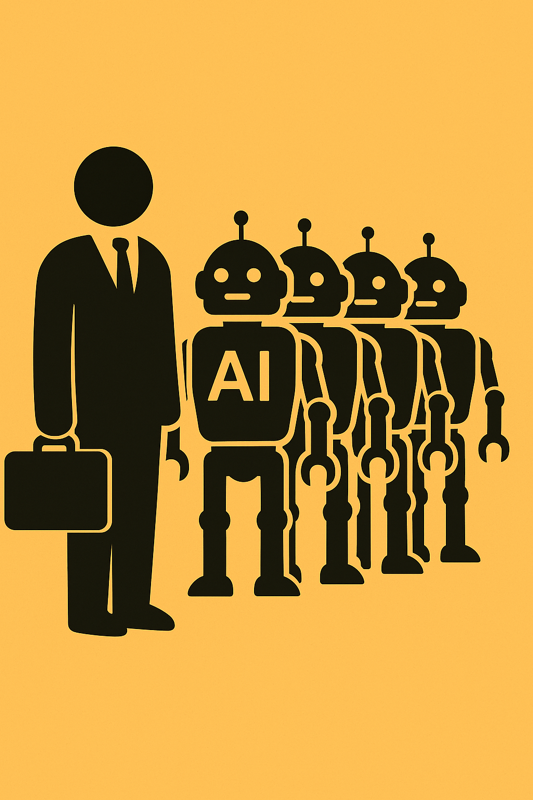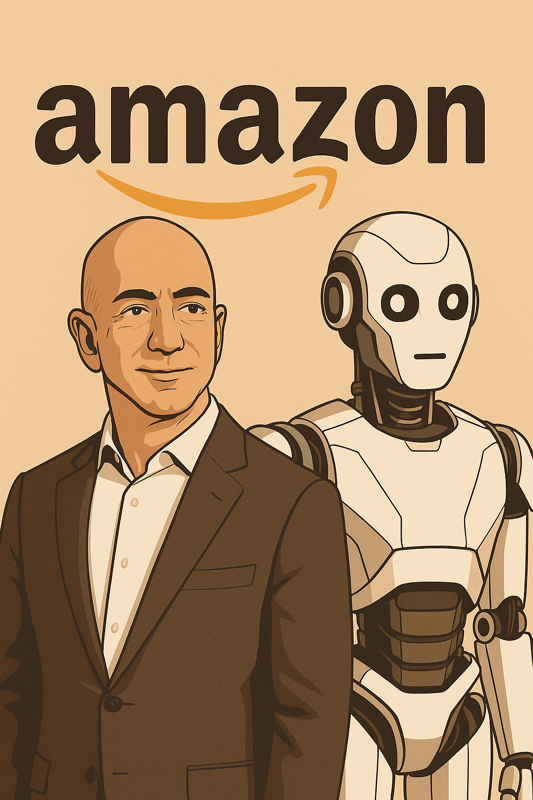Amazon’s CEO, Andy Jassy, warns that artificial intelligence (AI) will transform the way work gets done at the company. He predicts AI-powered agents will take over many current corporate jobs in the coming years. As Amazon expands AI tools across its operations, the workforce will shrink in some areas while evolving in others. This shift signals a significant transformation in how companies use AI to boost efficiency.
What’s Happening & Why This Matters
In a recent memo to Amazon employees, Jassy explains that generative AI and autonomous AI agents will handle tasks traditionally done by humans. He says, “As we roll out more generative AI and agents, it should change the way our work is done. We will need fewer people doing some of the jobs being done today.”
Amazon employs approximately 1.5 million people worldwide, including around 350,000 in corporate roles such as software engineering, marketing, and operations. Jassy cautions that AI efficiency gains will result in a reduction of the company’s total corporate workforce over the next few years, although some new job categories will emerge.
Currently, Amazon develops more than 1,000 generative AI services and applications. These AI agents conduct in-depth research, write code, and accelerate innovation cycles. Jassy describes future agents as “teammates we can call on at various work stages of work” to boost productivity and customer service.

The company has already experimented with automation beyond corporate jobs. In Seattle, Amazon tested humanoid robots capable of moving and handling items in its warehouse. Rumors suggest similar robots will soon assist with doorstep deliveries, traveling on the back of Rivian electric vans. Amazon’s Prime Air drone service already delivers products, such as iPhones and AirPods, in under an hour in select areas.
Jassy urges employees to embrace AI by learning and upskilling. “Those who educate themselves about AI and help improve our capabilities will be well-positioned to make high impact,” he says.
Other companies face similar challenges. BT Group’s CEO recently linked AI advances to further job reductions. Anthropic’s CEO, an AI startup, warned that AI could replace half of all entry-level office roles. Meanwhile, some firms, like Duolingo, announced AI-driven layoffs but softened their stance after facing user backlash.
The Organisation for Economic Co-operation and Development (OECD) estimates AI threatens jobs in skilled white-collar professions, including law, finance, and medicine. The International Monetary Fund (IMF) estimates that 60% of employment in developed economies is at risk from AI, with half of these jobs potentially affected.
However, the Tony Blair Institute suggests AI may displace millions of jobs but also create new ones, especially in emerging sectors.
TF Summary: What’s Next
Amazon’s AI rollout signals a future where many internal jobs change or disappear as AI agents handle routine and complex tasks. Upskilling and adaptability will become essential for workers.
As AI tools spread across industries, companies and policymakers must strike a balance between efficiency gains and workforce transitions, including training and social support.
— Text-to-Speech (TTS) provided by gspeech


